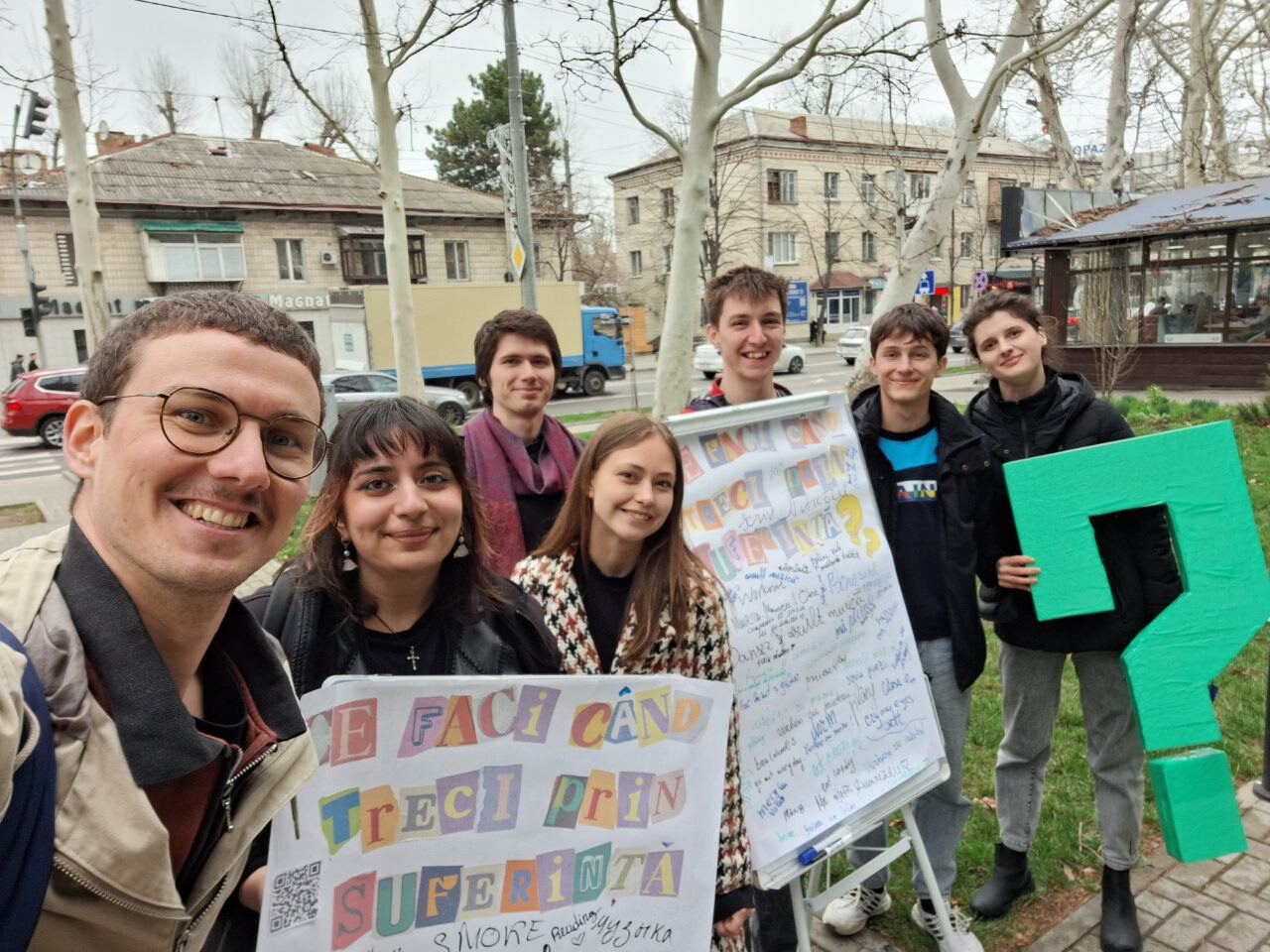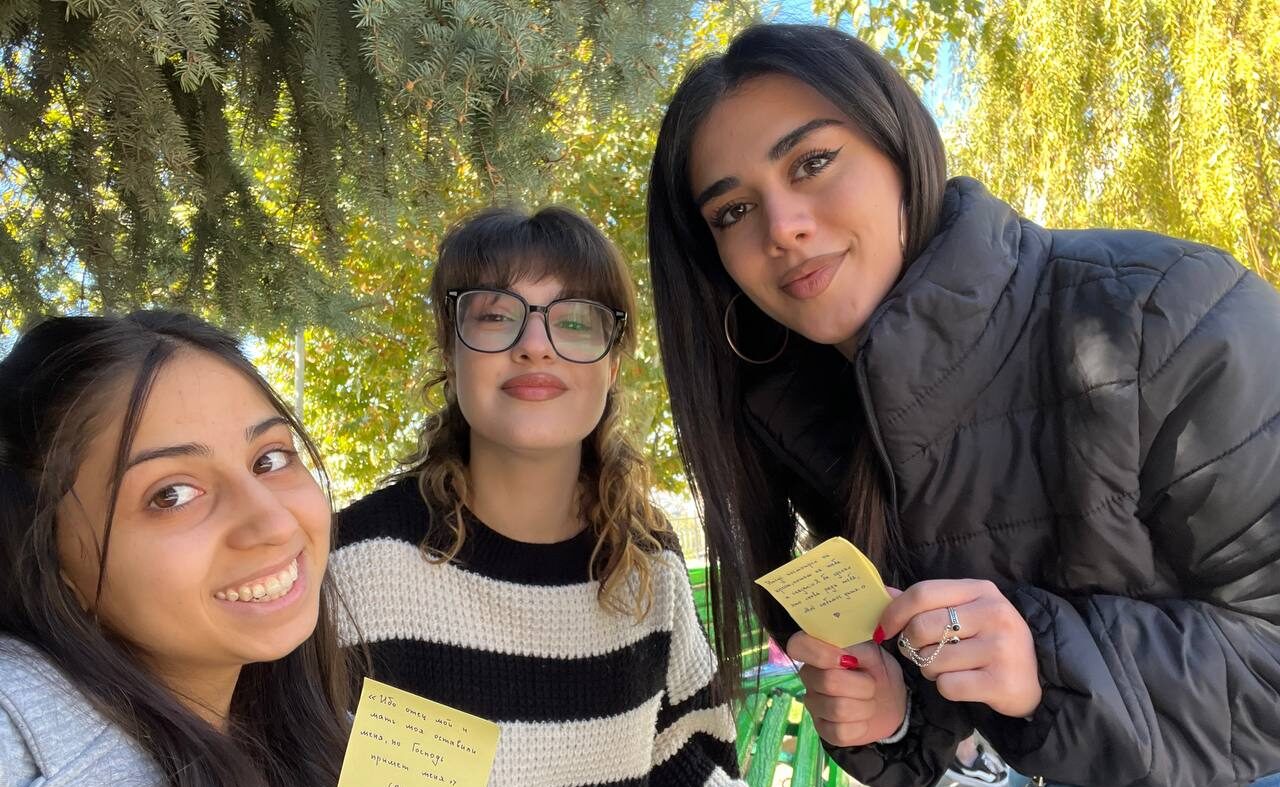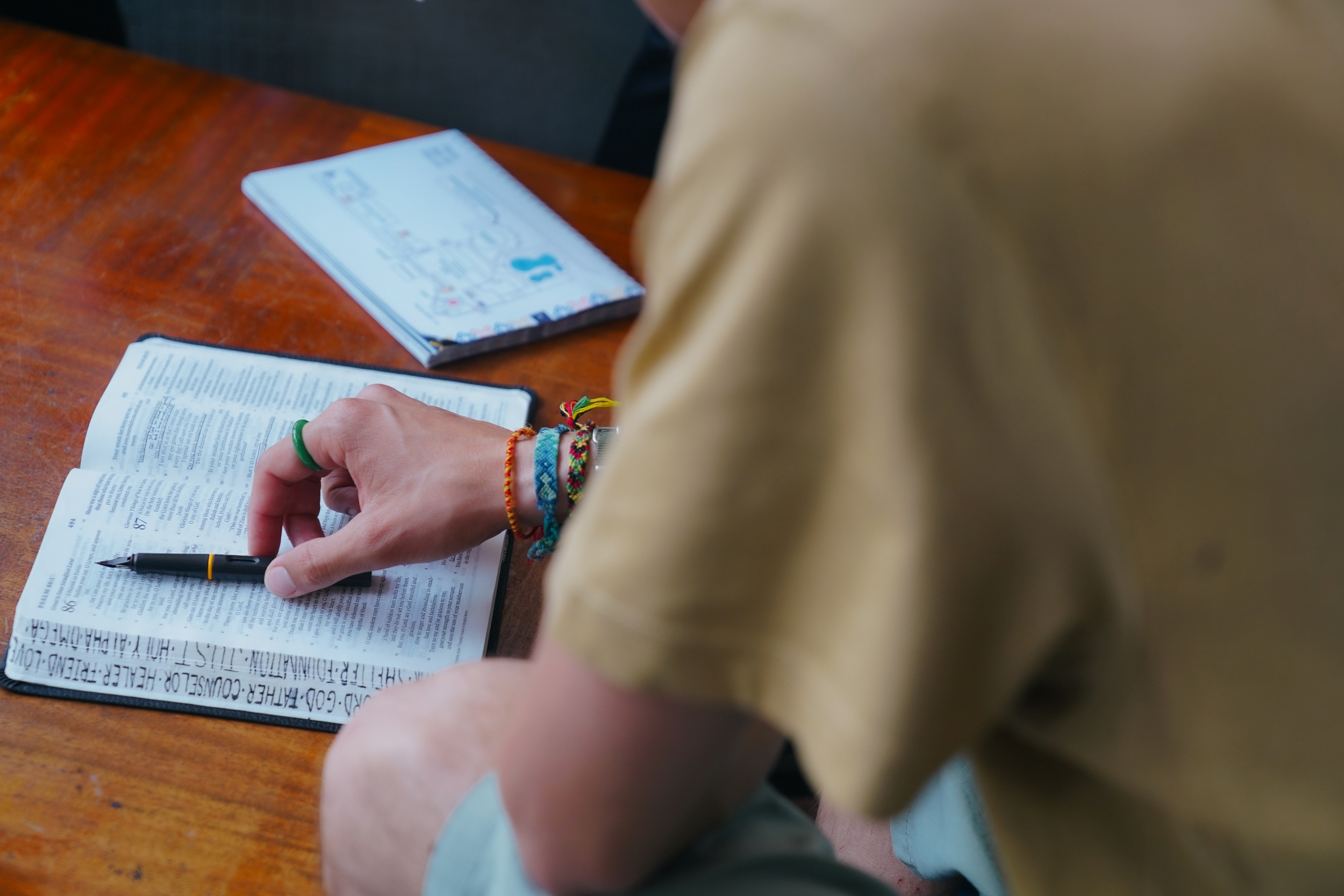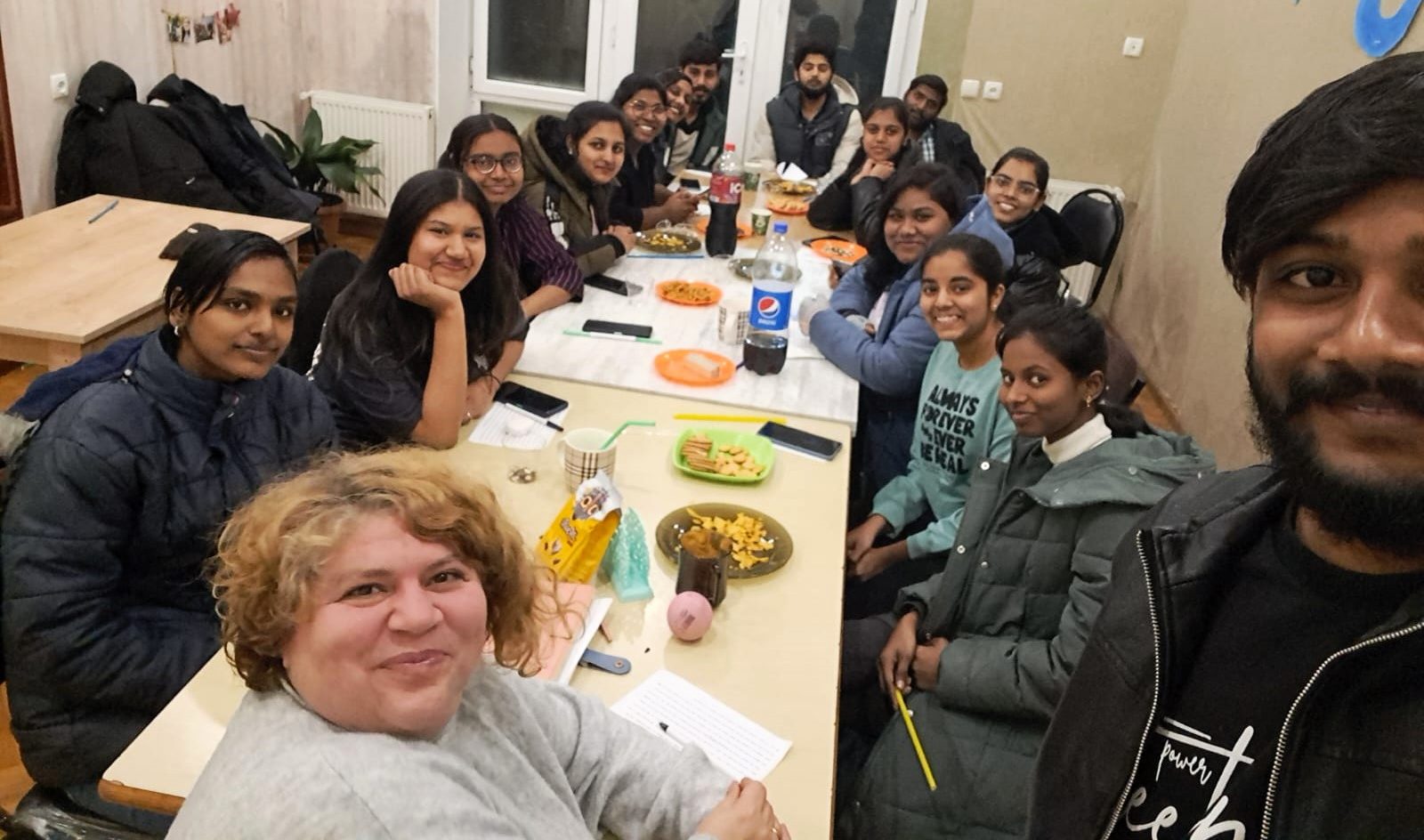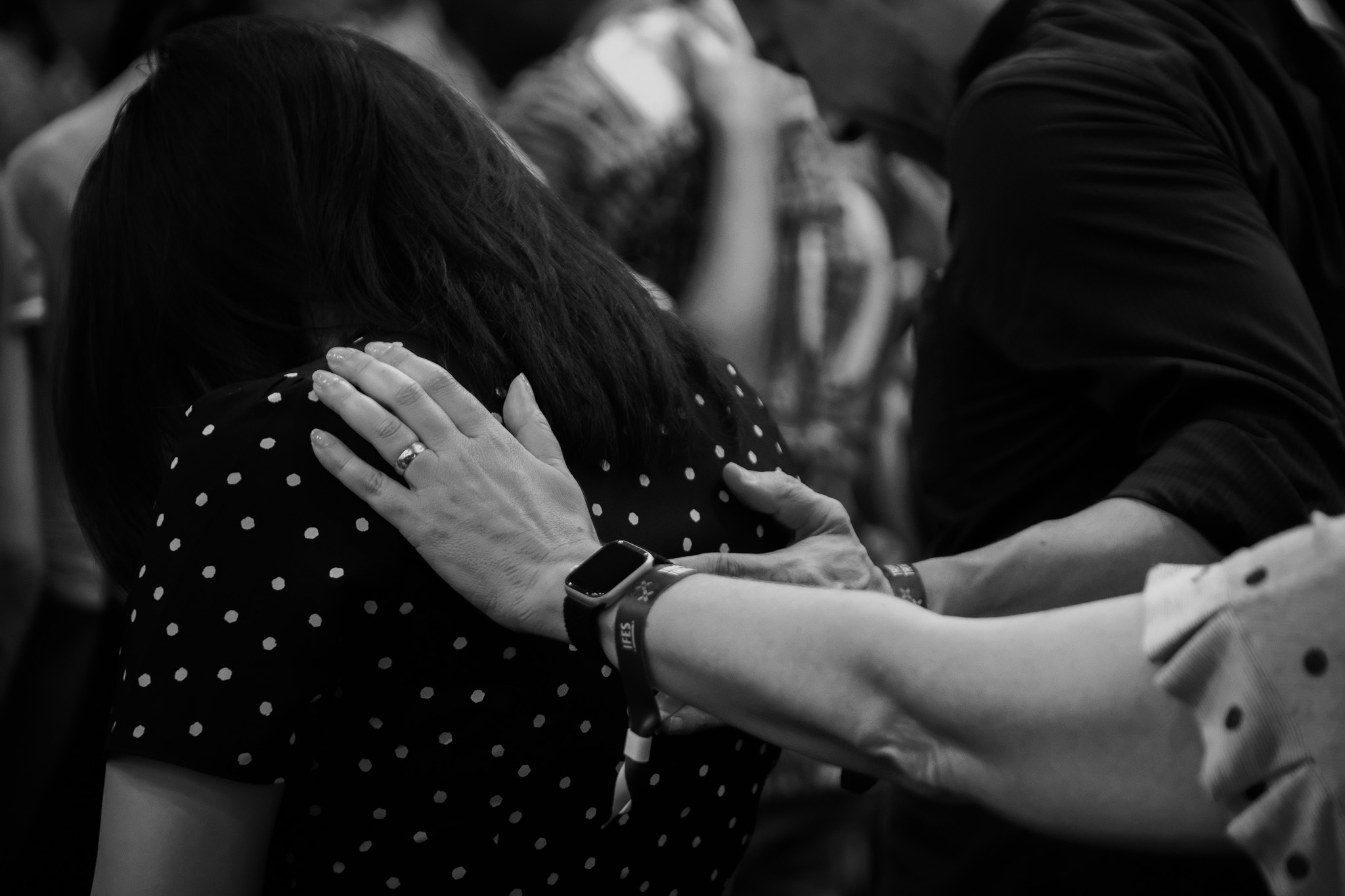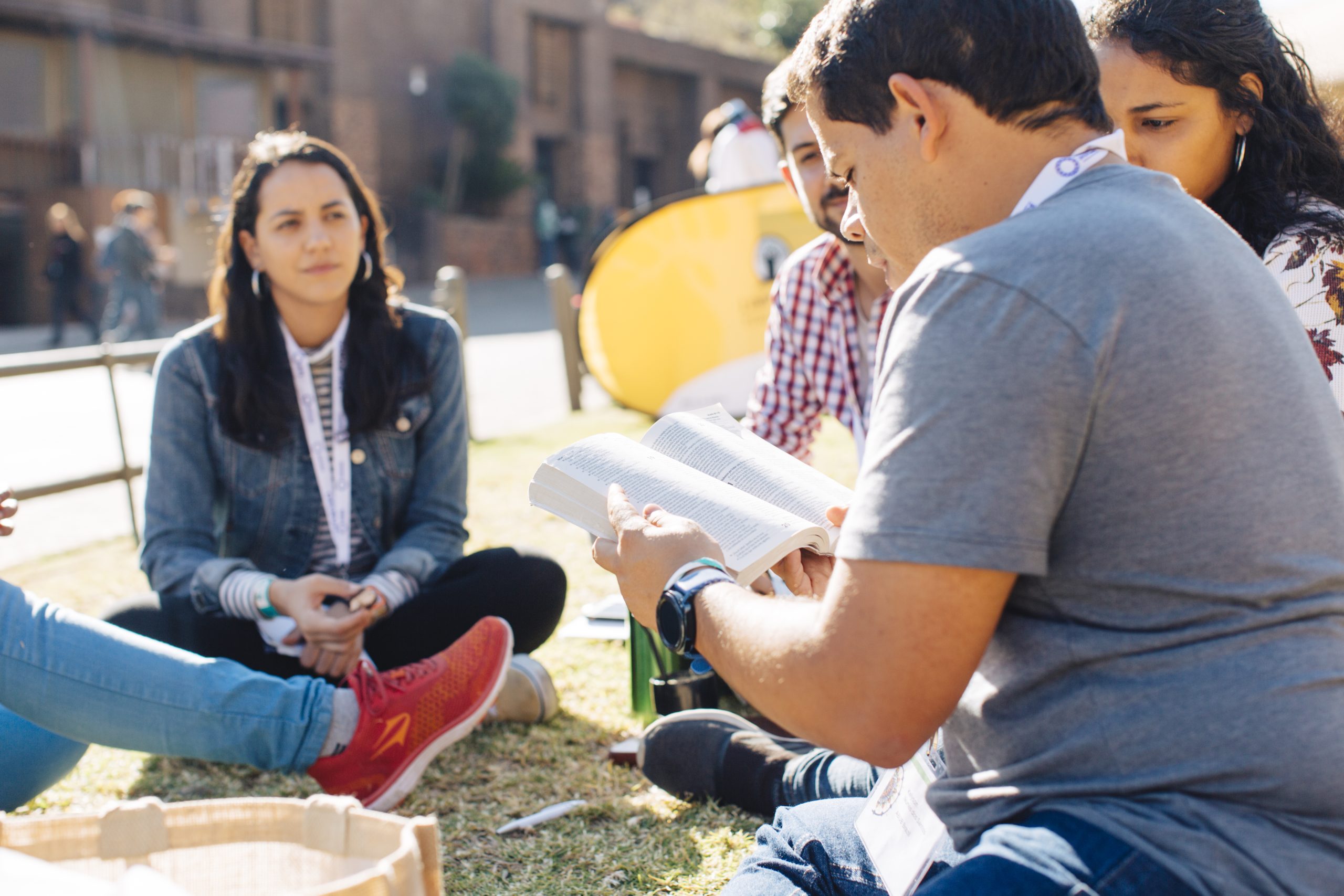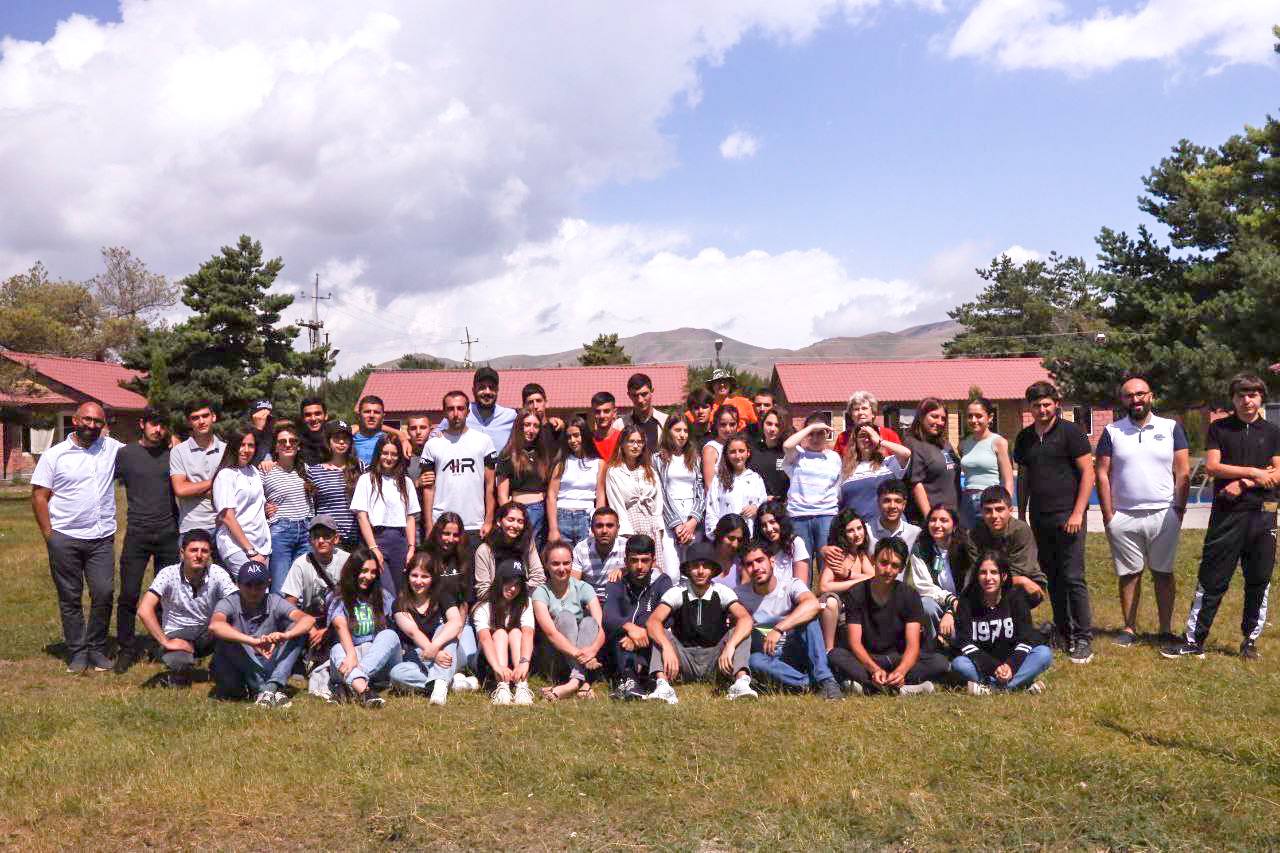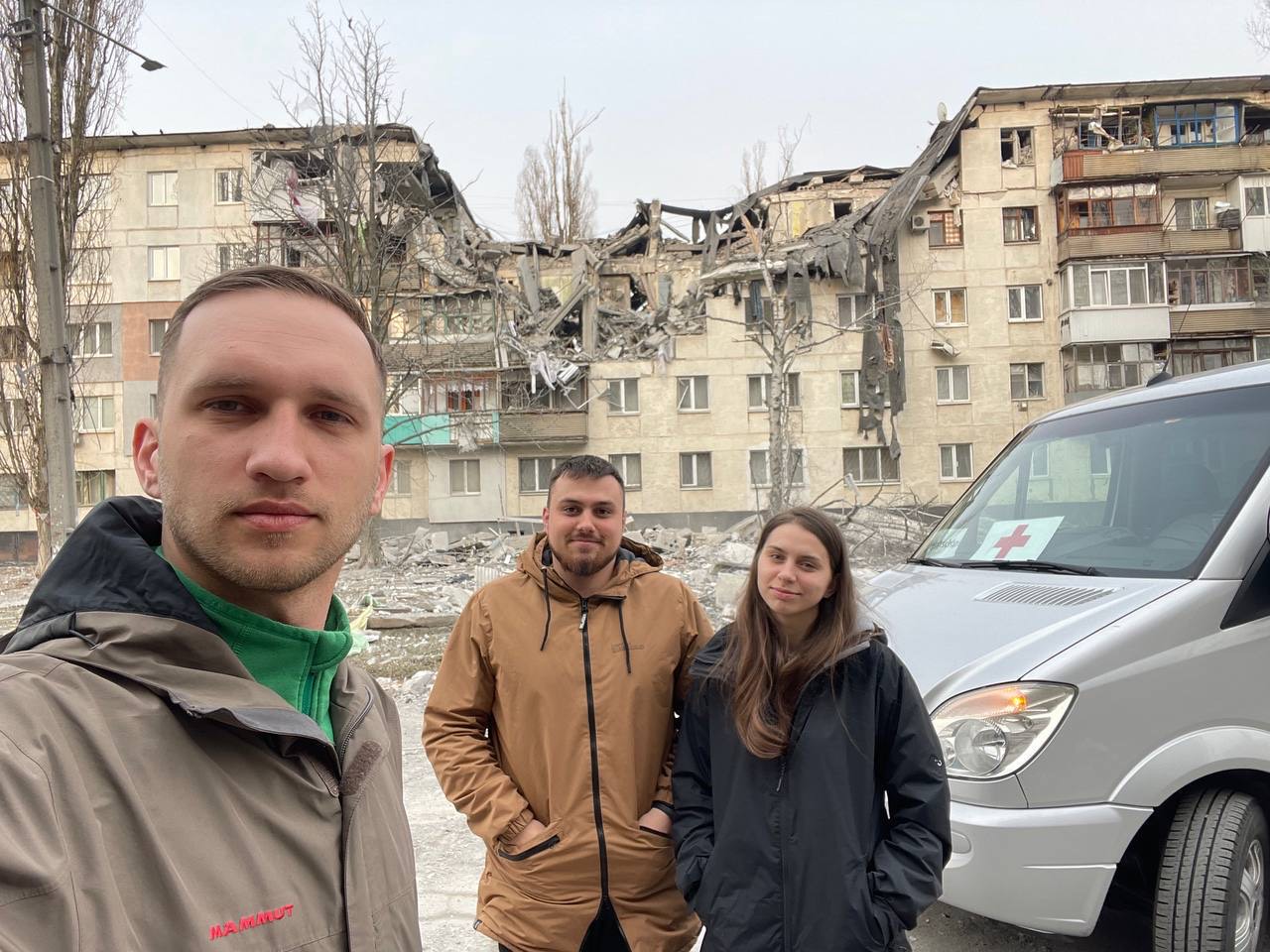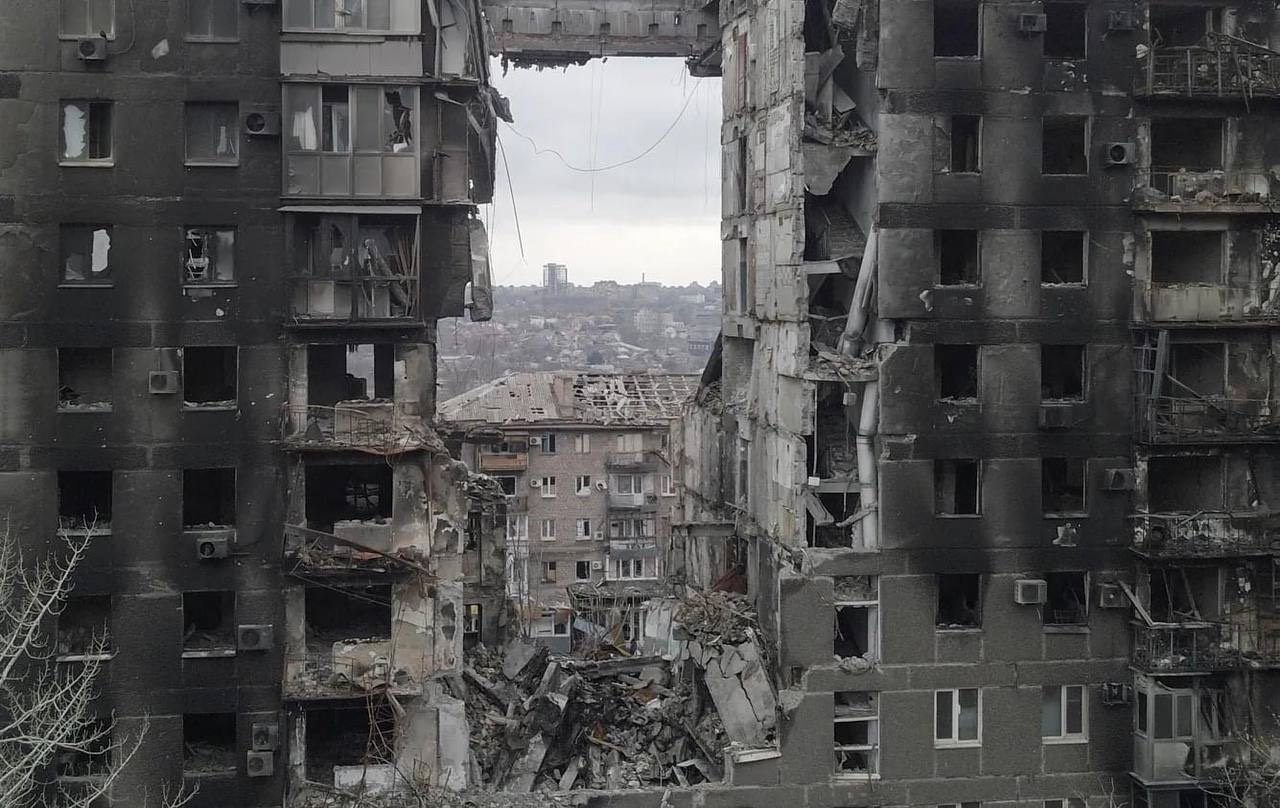The war in Ukraine has impacted the work of IFES on a number of levels. In this special two-part edition of Conexión, we share first-hand accounts of how, even in the midst of the darkness of war, God is working. Here you can read perspectives from IFES students, staff, and graduates in surrounding countries affected by the war, and the role the fellowship has played in providing support. You can read Part One, which features first-hand accounts from Ukraine and Russia, here.
Vera, Poland: ‘God answers quickly and gives abundantly.’
For ChSA Poland staff worker Vera, the war in Ukraine initially presented her with a dilemma. When news of it came, she was attending a youth conference with some Belarusian students when the news came. One student left immediately to drive to the border and pick up friends. Vera wondered – should she also jump in the car and race down to Ukraine?
As it turned out, she didn’t need to. As the coming months showed, God had different plans. Vera was born in Russia, but her family relocated to Canada when she was a child. Later, Vera served with InterVarsity Canada before moving to Świdnica, Poland. This background prepared her perfectly to make a difference in the crisis that unfolded after Ukraine’s invasion.
When Vera returned home to Świdnica from the conference, she was surprised to find Ukrainians already in her town. Using her Canadian connections, Vera and her husband Konrad began fundraising for refugee accommodation with their church. Generous friends gave over four times what Vera requested. Consequently, they were able to open seven rooms, with an overflow space housing 25-30 people in the church hostel. There was so much money left they even rented a seven-bedroom house, which is currently a haven for 15 people.
“The way God provided finances was really amazing,” says Vera. “The account would get close to zero, and then more funds would come from places we weren’t expecting. Similarly, while we looked into renting small apartments, I prayed for the house that I envisioned – big and empty, with light and a garden. The next day, a house exactly like this became available. We prayed specific prayers, and God answered quickly and gave abundantly.”
As she recounts her experience, Vera emphasises the mutually fulfilling relationships she has developed with these refugees. “I’m expecting a baby and many of them have given me presents, like baby clothes. Because I speak Russian, it’s a friendly dynamic, not a ‘we’re helping you’ dynamic. We’re trying to start a little business on Etsy to create jobs.” The contribution of refugees is also significant in other ways: “It’s been incredible to see how the churches and youth groups have grown. It’s a huge gift to the church in Poland to receive so many people with different experiences. As we give to them, so too we receive a lot from our Ukrainian brothers and sisters.”
This has also been the story for ChSA. While they’ve sent two trucks of supplies to CCX and assisted with temporary residence applications. they also emphasise that the refugees from Ukraine and elsewhere are beginning something new. In Warsaw, there are many young men from Belarus who have escaped from the risk of conscription. There, a staff worker (himself from Belarus) has been meeting with Belarusian and Russian-speaking students – including non-Christian students.
“God is using this horrible situation to begin something in Poland,” explains Vera. “So, we need to remember why we’re doing this. A lot of people have reached their limits and they’re tired. Pray for people to come to Jesus. Pray for openness, and for vision to see the opportunities.”
Adelina, Romania: ‘Meeting the Ukrainian people made me realise that the only solution is Jesus.’
Suceava, the city where Adelina is a student, is in northern Romania, close to Ukraine’s southern border. In the first week of the war, 42,000 refugees came to the city. Since then, over a million have entered Romania and, of these, around 85,000 have decided to stay. “It all began very suddenly,” Adelina remembers. “I wanted to help, but there was one big barrier. I didn’t know Ukrainian, and they didn’t know English or Romanian. What could I do?
“I struggled a lot. I saw everybody trying to give food and clothing. But I felt they weren’t addressing the soul, the trauma people had been through.” Adelina has met many people devastated by war: “kids with no parents, single parents, and old people, with no hope and no direction.” There is one encounter that stays with her. “I met a lady who was really scared and in pain. I asked what I could do to help her. But she just looked at me with tears in her eyes and said ‘unfortunately, there is nothing you can do to help me’. My breathing stopped and I felt a pain in my chest. I felt powerless – everything felt pointless.”
Adelina’s experience of the war has been defined by “moments of unrest, questioning, and feeling overwhelmed.” But it has made other things more certain for her. “Meeting the Ukrainian people and hearing their stories, I realise that the only solution for our lives is Jesus.”
There have been occasions when the love and hope of Jesus shines through especially brightly. “There were some people who couldn’t explain for themselves how we were able to do so much for them, how we could open our hearts and hands for them,” Adelina says. “I can define my experience with the word ‘hope’. When nothing makes sense, when it hurts, if God is our Father there is hope in his promises no matter the circumstances.”
Igors, Latvia: ‘There is no space for atheism in Ukraine’.
Igors is Secretary of Staff and Team Development within IFES. Previously he was part of the IFES Europe team, and before that he was General Secretary of LKSB, the national student movement in Latvia. Since the war began, his primary involvement has been to support Ukrainian staff. However, with roughly 30,000 Ukrainian refugees in Latvia, Igors’ wife, Nora, a LKSB board member, has had a significant role in coordinating help for these displaced people. In Riga, a group of churches have joined together as the Baltic Global Initiative. Working with a church in Chelm, Poland, near the Ukrainian border, they have coordinated deliveries, helped refugees get to Latvia, and connected them with local communities. Latvia is a relatively uncomplicated place for Ukrainians because the two nations share a Soviet heritage. Many older Latvians speak Russian and, in Riga, Ukrainian-language schools and kindergartens still operate.
In addition to his work at IFES, Igors is involved with the Baltic Pastoral Institute (BPI). From the outset of war, BPI students have been going to Ukraine. As Igors explains, they are eager to help because “many Latvians resonate with the experience of war from our own history.” It’s been powerful. One student said that he couldn’t recall ever having a more vivid sense of God’s presence. “The closer you go in the darkness, the stronger you feel God’s presence. It’s illogical.” Similarly, a Ukrainian told Igors that “there’s no more space in Ukraine for atheism. You need to believe in hell and heaven.”
It’s interesting, says Igors, “because you wouldn’t think that this would be the result. But if there’s no judgement, it’s hard to face the ongoing evil, and without heaven there’s no hope. It’s raised questions of good and evil. And I can almost see the whole nation going on this spiritual journey.”
How can we pray? “Everybody is tired,” says Igors. “For Ukrainians as well, we all feel like marathon runners, facing another phase. Collectively, we need to redefine what we’re fighting for. Pray for more strength.”
Olena and Clinton, Ukraine: ‘miraculous delivery’.
Olena, the IFES Head of Global Resource Ministries, is from Kyiv. She helped evacuate international students during the first few weeks of the war. “Some students were simply paralysed by the fact that there is a war,” she recalls. “They needed encouragement and logistical guidance. Some were stuck in basements without food or water. When their phones were charged and internet worked, I stayed in touch, assuring them that assistance is coming. God was in the middle of it all. He connected me with local pastors and representatives of international NGOs like the UN’s International Organisation for Migration (IOM), to join forces in helping students evacuate. It was teamwork at its best.”
For those students, the initial ordeal is over. All were evacuated safely, and as Olena adds, “miraculously.” One evacuee, named Clinton, says that his “very existence is a huge testimony. I have seen, and still see God working in my life. From the time the invasion started until now, God in his glory has made every passage smooth for me. He has showered me with his infinite love and protection, giving me the courage and strength to forge ahead.”
This doesn’t mean that things have been easy. “It was a traumatic, lonely experience. I don’t want to think about it.” Clinton travelled for three days to the IOM office outside Kyiv, where they assisted him in getting to Poland. There, he has resumed his studies. “Pray for me, for divine protection, provision, and comfort,” he asks. “And above all, let me not depart from God’s presence. Because I understand that without him, I am empty.”
Audrey: ‘How God saved me out of Ukraine.’
“On 24 February everything had to stop. I never thought I would face war. All I did was stay inside and cry, until I no longer had words to tell God.”
Audrey is from Tanga, Tanzania, where, for three years, she was a student with TAFES, the Tanzanian national movement. She had started a medical degree at Sumy State University, very close to the Russian border with Ukraine, when the war began.
“I was looking for transport out of Sumy and communicating with Joan, a TAFES staff member. She linked me with Olena in Poland, who kept in touch with me throughout my journey from Sumy to Poltava, Lviv, Chop, Záhony, Budapest, and, finally, to Tanzania. She always asked if I needed any support and made sure that I was safe.”
While Olena could offer practical support, Audrey adds that “TAFES were with me in prayer until I got to Poltava on 7 March. I saw miracles through it. All I can say is thank you CCX and TAFES. Stay faithful and believe our almighty God. I hope that through my testimony people will learn the goodness of our Lord.”
Nay: Responding like a family
Nay, from the IFES Europe team, has played a significant role in coordinating the IFES response to this war, in Europe and beyond. “We’ve been amazed,” she says, reflecting on how people have assisted with these efforts. Nay has also called on people to unite in prayer. “We started Whatsapp prayer groups in English and French, which have 1200 people from across the world committed to sustained prayer. We’ve run weekly Instagram Live interviews, and a monthly online prayer meeting. Supporters, staff, and students have given to the emergency funds – totalling around USD 300,000.”
As well as facilitating prayer support, Nay is coordinating pockets of hospitality across Europe. What began as informal arrangements for the friends of Ukrainian and Belarusian staff has developed into a wider, joint effort with Langham and UFM called Ukraine Connect. “It has been amazing to see how IFES has responded,” she says. “Like a family.”
